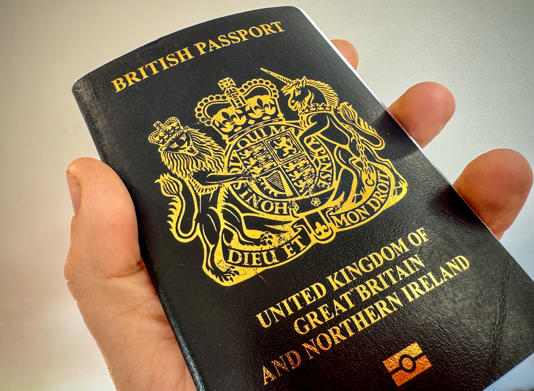
New plans for ‘frictionless’ travel mean passengers arriving in the UK will no longer need to have their passports in hand at immigration gates.
Instead, new e-gates will use advanced facial recognition to identify people as they arrive into the country, according to The Times.
Phil Douglas, director-general of Border Force, told the paper the aim was to create an ‘intelligent border’. Similar technology has already been developed by Dubai and Australia – Mr Douglas said he was ‘really impressed’ by a recent trip Down Under.
‘I had to apply for an electronic travel authorisation in advance and used my smartphone to read the chip in my passport,’ he said. ‘That sent the image of me in the chip to the Australian authorities.
‘When I arrived in Australia, I didn’t even have to get my passport out of my bag. It is a really interesting concept.’
Trials of the new facial recognition e-gates are expected to begin this year, and will require travellers to be registered on a database.
Mr Douglas said this will provide more information about those entering the country.
‘We will know a lot more information about people upfront,’ he said. ‘We will know if they’ve been in the UK before. We’ll know what their compliance with immigration laws is. And we’ll know if there’s any records of them on our security systems. So there will be some people who won’t be getting on the plane.’
Existing e-gates already allow arrivals from a number of countries – not just the UK and other European nations – to pass through border control without having their passport manually checked.
Instead, they scan their passport at the gate and look into a camera, which matches the face of the passenger with the document.
However, the system has suffered a number of failures in recent years, and causes travel chaos when it does.
In May, thousands of travellers had their late bank holiday delayed after the whole system collapsed due to a failed software upgrade.
When the gates are out of action passengers must be manually screened, but there are now fewer desks available to funnel passengers through.
Facial recognition is being used more frequently in other aspects of daily life, most commonly in law enforcement.
Human rights campaigners have raised repeated concerns about the technology and its impact on civil liberties.
The Metropolitan police faced criticism over its decision to deploy facial recognition at the King’s Coronation in May 2023, while there is concern over the long-term consequences of AI misidentifying someone in relation to a crime.
The software has also been found to have significant racial bias, and also raises privacy concerns in the event of a data breach.
Source: Metro


